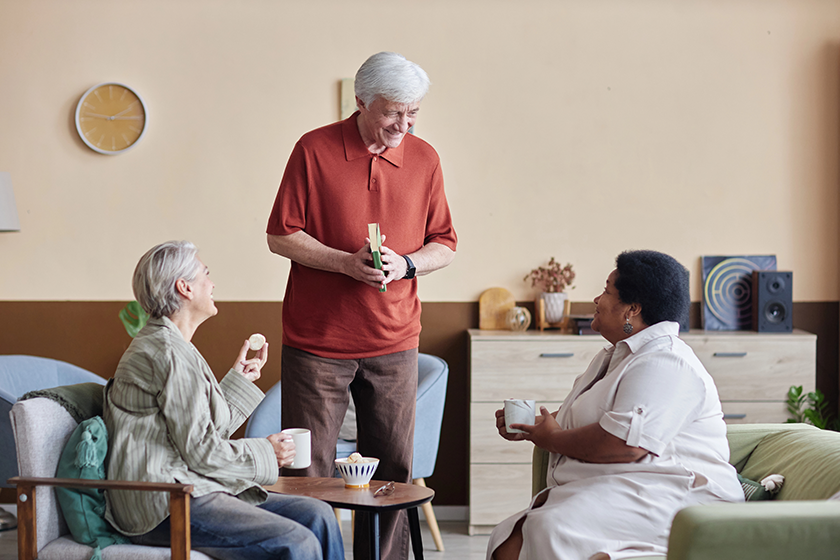When your loved ones are in a respite stay, the environment plays a significant role in how they adjust to temporary care. The comforts of familiar spaces, along with the companionship of others, can make a difference in their overall well-being. Lounges in Respite Care communities help create an atmosphere of connection, offering a place where residents can relax and socialize.
Socialization and Interaction in a Relaxed Setting
Lounges in Respite Care environments offer much more than just a place to sit. They serve as gathering spots where your loved ones can interact with others, like fellow residents or team members. The opportunity to socialize in a comfortable and informal setting can significantly reduce feelings of isolation that can sometimes accompany a respite stay.
The welcoming environment of a lounge fosters spontaneous conversations and activities. These moments of connection not only help pass the time but also promote emotional well-being, as your loved ones can share stories, experiences, and interests with others.
A Space for Rest and Relaxation
While social interaction is key, lounges also offer a much-needed space for rest and personal reflection. Older adults can use these areas to unwind and recharge after a day filled with activities or therapies. The balance between social engagement and solitude allows them to feel at home, making their respite stay feel less like an interruption and more like a positive experience.
Comfortable seating, soothing décor, and quiet corners help create an atmosphere of peace. For your loved ones, knowing that there is a dedicated area to relax can help them feel more at ease during their stay, leading to a smoother transition into care.
Strengthening the Bond Between Team Members and Residents
In addition to fostering social interactions between residents, lounges in Respite Care communities also serve as important spaces for the team to connect with your loved ones. Caregivers and other members can engage with residents in more informal ways, allowing them to form closer bonds. These interactions are meaningful, as they help team members better understand the personalities, preferences, and needs of your family members.
Such relationships are important for creating a nurturing environment where residents feel valued and understood. By spending time with residents in a non-clinical setting, the team can also spot any emotional or physical concerns that may arise, offering support when necessary.
Creating a Sense of Belonging
The shared experience of spending time in a lounge helps build a sense of community among residents. If your loved ones are enjoying a warm drink or participating in a group activity, they are bound to feel more integrated into the community. This social atmosphere is a key component of their emotional health during a respite stay.
In many Respite Care communities, lounges are also used for scheduled events like movie nights, game sessions, or art classes. These activities bring residents together, fostering teamwork and camaraderie, and allowing them to form friendships that may last beyond their stay.
The Role of Lounges in Respite Stay Environments
A well-designed lounge can significantly improve the experience of your loved ones during their respite stay. These spaces offer opportunities for both rest and socialization, promoting mental and emotional well-being. By encouraging interaction and providing a peaceful retreat, lounges play an important role in creating a comfortable and community-oriented environment during your family member’s temporary stay.
A lounge is not just a physical space but a nurturing environment that encourages a sense of belonging and connection. As your loved one spends time in Respite Care, they will benefit from the emotional support and positive atmosphere that lounges help create.







